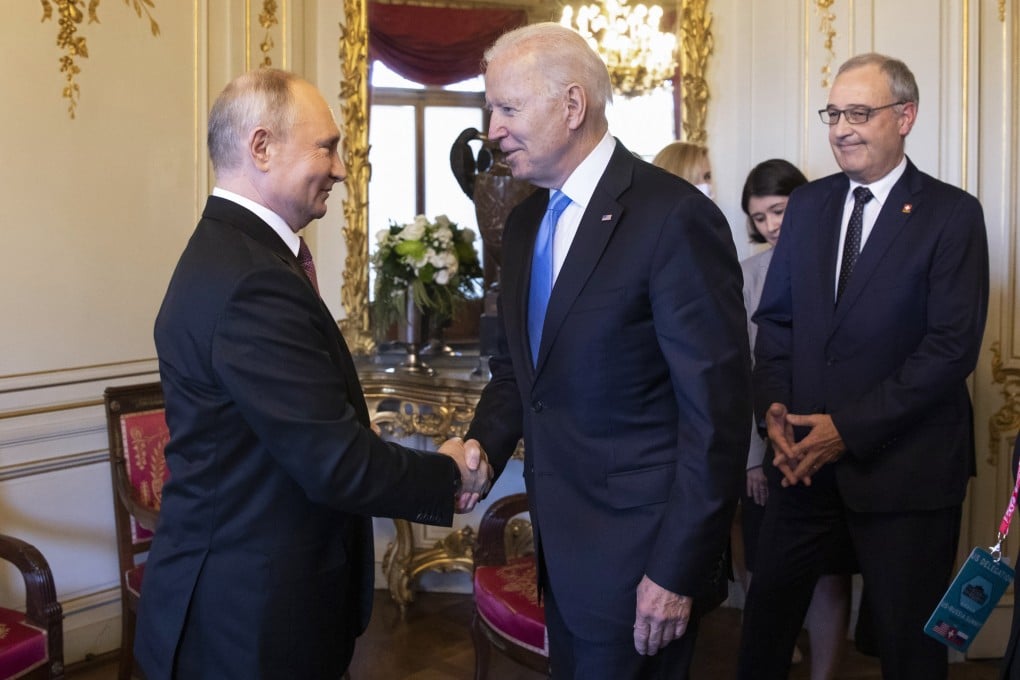Biden and Putin call Geneva talks ‘positive’, ‘constructive’, but differences emerged over how much they will cooperate
- US President Joe Biden and Russian President Vladimir Putin hold a discussion in Switzerland a day after Biden says Russia and China both present threats
- Biden says the two agreed to form a task force on cyberattacks, but Putin reportedly denies that Russia has played any role in such attacks against US

“I‘m pleased that [Putin] agreed today to launch a bilateral strategic stability dialogue – diplomatic-speak for saying get our military experts and our diplomats together to work on a mechanism that can lead to control of new and dangerous and sophisticated weapons that are coming on the scene now, that reduce the times of response, that raise the prospects of accidental war,” Biden said in his news conference after the meeting.
In a dialogue that Biden described as “good, positive” and absent of “any strident action”, he said they agreed that the cybersecurity task force would aim to identify specific critical infrastructure assets, including public energy and water assets, that must be “off limits” to cyberhackers.
The talks, which included US Secretary of State Antony Blinken and Russian Foreign Minister Sergey Lavrov, lasted for three hours, including one break. They were expected to last four hours or more, but two of three sessions were combined into one and a break was cut from the agenda.
The summit, held at an 18th-century Swiss villa in a park overlooking Lake Geneva, was the final act in Biden’s first overseas trip as president, during which he shored up consensus within the European Union, the G7 and Nato that Russia and China present threats to each of these multilateral groups.
Both countries, Biden said just a day before his meeting with Putin, were “trying to drive a wedge in our transatlantic solidarity”, while he called Nato’s Article 5 – which obligates each member nation to come to the defence of any other member that is attacked militarily – “sacred”.
